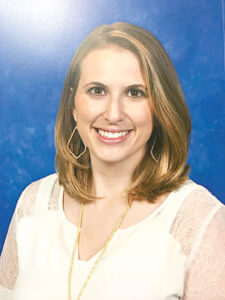By SARAH DOOLITTLE
Four Points News
Vandegrift High School is increasing efforts to address the emotional needs of students in the wake of five Leander ISD student suicides since the beginning of the current school year.
LISD Superintendent Dan Troxell emailed families on March 31 in response to student suicides. His message to parents: no one can do it alone. “We know that early identification and intervention of mental health concerns cannot be achieved without support and engagement from the community,” wrote Troxell. “We can help our students by working collaboratively to address mental health concerns, as we know these issues extend beyond the boundaries of our schools and affect those we care about so deeply.”
At Vandegrift, changes are taking place to help address these concerns.
In addition to existing counseling services and staff, two additional counselors will be hired for the next school year, “which will allow us to expand our support and outreach,” said current VHS counselor Amy Rodriguez.
The school also administered the Stanford Survey for Adolescent School Experiences last week May 16-19, thanks to funding from the VHS Parent Teacher Student Association. The survey is part of a nationally-recognized program, created at Stanford University, that allows schools to get a fuller picture of their students’ lives.
According to Rodriguez, the survey measures, “how (students) spend their time after school, their relationships with their teachers, academic engagement, parent goals and expectations, sleep, stress, and academic integrity.”
Additionally, the PTSA has a newly-formed Healthy Lifestyles Committee, created with the charter of supporting VHS students’ physical, mental and emotional health and wellness.
As one of the most competitive schools in the district, VHS challenges students not only academically but also in their extracurricular activities, many of which require long hours of practice on top of the hours of homework assigned to a typical VHS student nightly.
This often leaves students overextended — a challenge shared by the counseling staff.
“Finding time in the day to fit everything in will always be difficult for all of us,” said Rodriguez, speaking of the work performed by her department on behalf of the school’s approximately 2,300 students. “So much is encompassed in supporting students and doing it well.”
This includes academic advising as well as emotional support, topics which frequently overlap.
“I feel that the conversations we have with students starting at the level of course choices and college and career planning can develop into deeper conversations about struggles that they may have to navigate during high school, as they move through their four years here,” Rodriguez said.
Rodriguez is grateful for the opportunity to learn more about students through the Stanford Survey for Adolescent School Experiences. In an email sent to families about the survey, the counseling department assured parents that the survey is 100 percent anonymous — and optional. Students can, “answer as many or as few of the questions as they feel comfortable,” or parents can sign a waiver opting-out students entirely.
The goal is, “to use the data from this survey to identify and implement strategies that can enrich academic engagement, improve student well-being, and create a healthy learning environment,” said Rodriguez.
It’s a goal shared by parents, who have the added challenge of providing and modeling a healthy home life. Sareta Heath is the parent of a VHS student and chairperson of the newly-formed PTSA Healthy Lifestyles Committee.
This committee is one recommended by the Texas PTA, but not all schools have one. Heath explained that, “Most lower level schools use the committee to promote healthy eating, good exercise habits, good choices and healthy friendships.”
For high school students, though, “The stakes are higher,” said Heath. “My role will be to lead the committee in exploring those same lower school topics, but to also include management of emotional stress, anxiety, academic and social pressures, and self-monitoring of social media.”
Heath hopes to, “get the conversation started about self-care, mentally and physically,” and to work closely with the counseling office. “By developing and making healthy lifestyle choices now… hopefully (students) will leave home with the tools needed to deal with life issues in any given scenario.”
With the shared goal of raising healthy, balanced kids, VHS counselor Rodriguez echos Troxell’s sentiments and reminds parents, “that support for our teens is a team effort and the school is one piece of a bigger puzzle. I want parents and students to feel comfortable contacting the counseling office as a resource for whatever their question or concern may be.”
Email and phone contact information for the counseling office can be found on the VHS website, www.vhs.leanderisd.org, or by calling the school at (512) 570-2300. VHS parents interested in serving on the Healthy Lifestyles Committee can email Sareta.Heath@gmail.com
Tips for raising mentally healthy students
By SARAH DOOLITTLE
Four Points News
When it comes to raising a physically and mentally healthy child, Shelley Coleman speaks not only as a licensed counselor but also as the parent of a teen, one about to enter the highly-competitive environment of Vandegrift High School.
Coleman, who lives in Steiner Ranch and practices in Lakeway, will have a student attending VHS in the fall of 2017 and will serve on the PTSA’s newly formed Healthy Lifestyles Committee.
Raising healthy, balanced kids in a rigorous and challenging academic setting starts with the basics: encouraging healthy sleep habits, limiting caffeine consumption and teaching students how to prioritize their goals, she said.
For students, “should you be in six AP classes, on the swim team, in your church youth group and president of the student council? Is this something you can manage? For some kids, maybe. But for a lot of kids, no,” Coleman said.
Coleman has had to exercise the same discretion at home, helping her incoming freshman to choose between a full load of AP classes and being on the swim team while meeting their family’s standards for a balanced life.
As Coleman explained of her expectations for her daughter, “I want you to sleep a good eight hours, I want you to eat healthy, and I want you to have friends and do some stuff on the weekend like going to the movies and hanging out and taking a nap… I want you to have those things too.”
While Coleman recognizes the importance of academics and hard work, she also points to the pitfalls: earning all A’s or not missing team practices or having a high class ranking do not constitute a successful student if there is no sleep or if the student is experiencing excessive anxiety or indulging in unhealthy behaviors to self-medicate.
The nationally-ranked schools in Four Points attract families that want the best possible educational opportunities for their kids.
“Our environment is like that,” said Coleman. “And then I think there’s pressure in some homes. And kids put a ton of pressure on themselves.”
The goal, though, is not to eliminate stress or anxiety, rather, “to help our kids have frustration tolerance and anxiety tolerance,” through positive choices, she said.
To that end, Coleman recommends setting limits on devices, exercising, setting boundaries, finding stress relief, and modeling as parents.
Set limits on devices, especially around bedtime or family time. “You need to have tech-free zones,” such as at the dinner table or in bed before falling asleep.
Exercise and the accompanying stress-fighting hormones it releases are an easy way to relieve anxiety.
“Exercise is good, and sports are good,” Coleman said but points to an important caveat, that they can also be stressful when it’s competitive or driven by larger goals such as a college scholarship or advancing on a team.
“You have to teach your kids to set boundaries, healthy and respectfully, with adults,” she said, so that students can learn to prioritize their tasks and time just as adults do on a daily basis. For example, is it better to do homework for five hours to complete an assignment and study for a test? Or can the homework assignment wait in order to prioritize sleep instead?
Also listen to your child when determining the best ways to relieve stress and anxiety because every child is different and for some kids it’s exercise, for others it’s friend time.
Parents themselves can model healthy behaviors around managing stress. Parents should ask themselves how they are modeling how they cope with stress.
Coleman’s ideal is not only kids who can graduate from high school having not already burned out on their educations, but also students with, “the ability to have balance,” she said, especially before they go off to college and are solely responsible for managing their own mental wellness.
“I think we have to start embracing mental health as a part of health,” emphasized Coleman. “Give your brain some down time. Let your brain rest, daydream. Take care of your brain. It’s as important as your body. We have to raise mentally healthy humans.”



